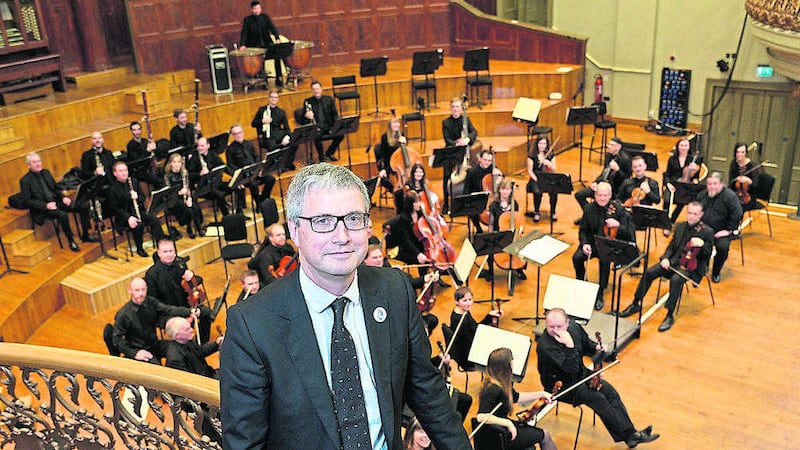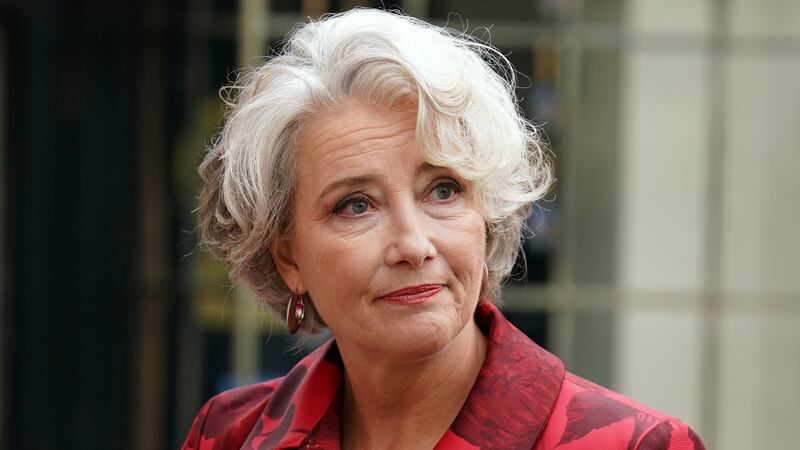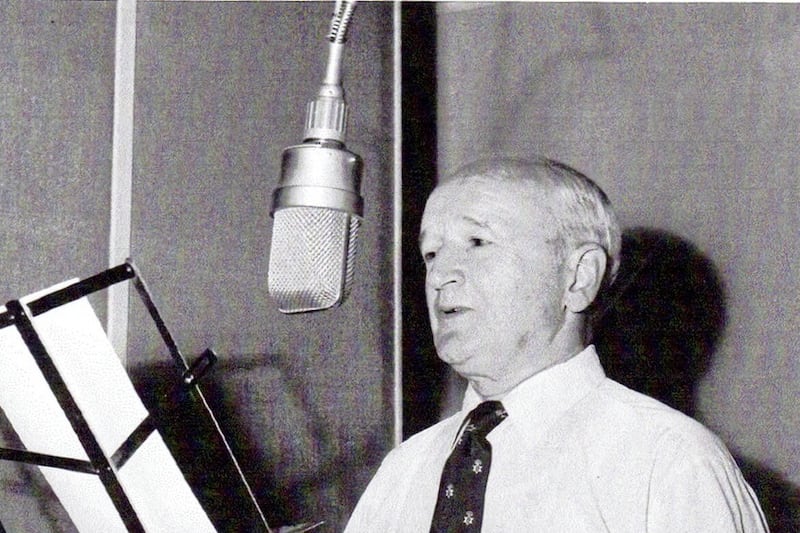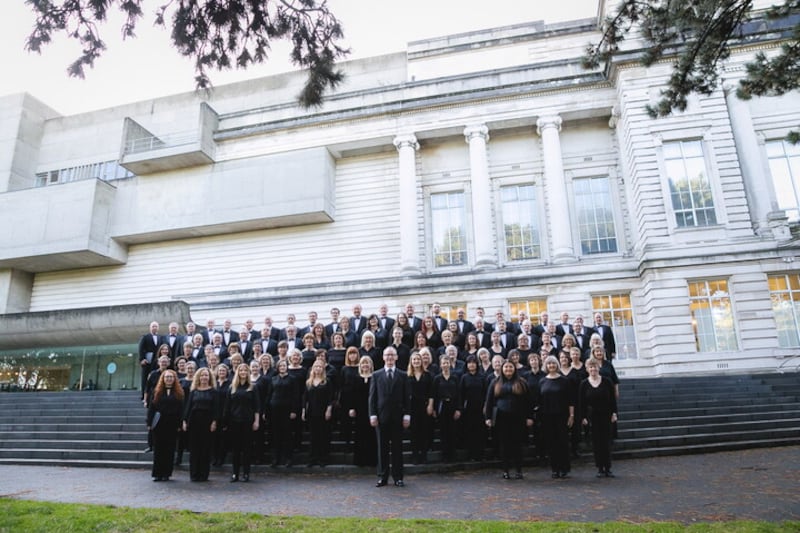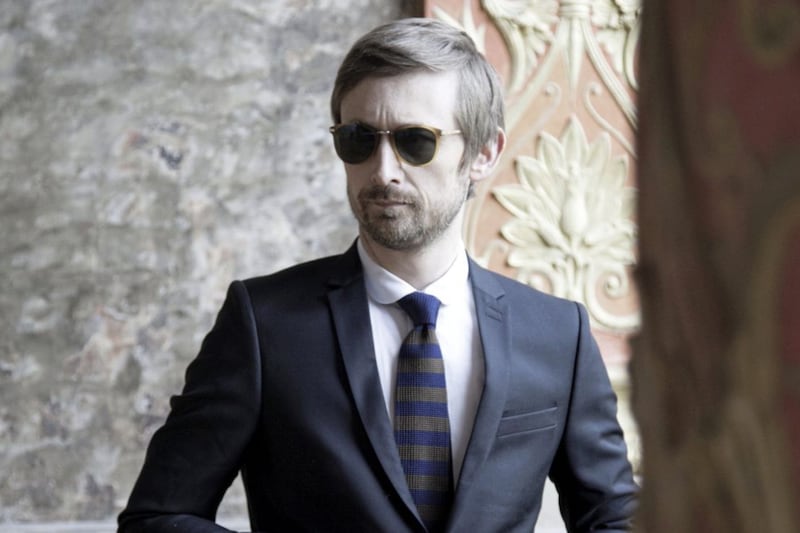GREAT orchestras obviously need great conductors, but they also require hugely talented managers. In Richard Wigley (55), the Ulster Orchestra may have found the ideal man to turn around not just its finances, but its morale. The new MD arrives here after working as artistic manager at the rated Netherlands Symphony Orchestra and was general manager with the BBC Philharmonic for a decade before that.
Wigley talks about "channelling the energy" of the orchestra and praises its warm sound. When asked whether he considers himself as important as the conductor, the New Zealander smiles and gives a smart answer.
"It's always a partnership," he says. At the highly respected Halle Orchestra, based in Manchester, "you had (the late conductor John) Barbirolli and manager Clive Scott, while world renowned English conductor Simon Rattle had Ed Smith as chief executive at the Birmingham Symphony Orchestra".
With Rafael Payare as the Ulster Orchestra's principal conductor, the stellar Venezuelan and Wigley should make a similarly successful duo. Asked about Payare's future, Wigley comments: "I hope he'll stay. I remember coming over to hear him conduct when I was talent spotting at the BBC Philharmonic and he ticks so many boxes with that creative energy."
Financially, there is work to do. The orchestra has bid for just under £2 million Arts Council funding for 2016-2017 but won't know the result until later in the spring. Annual running costs are roughly £3.8m and there are various income strands – but they need to find another £0.5m.
"There is a shortfall but I am confident we can make up the difference," Wigley says.
The man now in charge of managing the Ulster Orchestra agrees he has a big job to tackle, after a year in which the orchestra's closure was contemplated.
"It depends how these things are managed. At the Halle, they went out of business in 1999 but look where they are now. You have to pare down to a good foundation and aim for survival and growth, not just survival. The opportunities in Northern Ireland are huge."
You sense he relishes a challenge.
In terms of management style, Wigley seems collegiate. He says he's open to good ideas from anybody, adding: "My style is collaborative, but not woolly collaborative. I don't want to sit yacking for three hours with no decision reached."
He is also a listener. On hearing I'd attended the orchestra's Valentine's Day concert at the Ulster Hall, he asks immediately how they should do it next year. He thinks the programme should be popular but superbly played.
"If you need the bleeding obvious, do it – there's no point in being clever. It's got to be good but in this business there is a tendency to programme for ourselves with something that finished in E minor and started in B minor. You have to produce what people want to hear."
On the vexed question of classical music's ageing audience, Wigley has a robust answer. "I've been hearing for 30 years that our audience will die, but it hasn't. I'll tell you why – it's because as people get older and have more time, these oases of reflection become more important whether in the concert hall or at a play.
"This audience has always been the most important for us and I don't think that will change."
He notes that in the 1980s, a new generation of concert-goers was ignored.
"Orchestras stopped doing schools concerts, bizarrely, and I think we'll struggle to regain those people who were nine or 10 in the 80s."
Unlike this lost generation, Wigley had a good introduction to music in his native Palmerston North, a city of 90,000 on New Zealand's North Island. He reveals he has loved the big sound of an orchestra since he was young.
"There were nine people in our family, with six boys, and we were all taken to orchestral concerts. It was the sound of it that hit me. Even if somebody didn't like Beethoven, they'd tell you they loved the sound of the orchestra. It's what drives me in what I do."
He progressed to playing the oboe, then transferred his allegiance to the bassoon. As a professional musician in the Halle Orchestra – he has a home in Manchester with his wife Kim – Wigley remembers older players who were on nine-month contracts.
"They loved it, as they did nine months with the Halle, then took the summer off and worked on the pier, meeting their public. If they didn't entertain them, they didn't get paid."
He likes the idea of musicians using their creativity outside the usual repertoire and says that in Amsterdam, he encouraged some string players to develop a concert in the folk idiom that was "electric".
When Wigley's excitement about playing waned, this coincided with a growing enthusiasm for his role as education director at the Halle. The woodwind section's loss was music management's gain.
Wigley makes a good case for the arts which he sees as nourishing. Away from work he's a jazz fan, namechecking Esbjorn Svensson of e.s.t.
"His music has a lot of the same spirit as Bach, with repeated riffing. But I don't want to over-analyse it – I let jazz happen."
Music runs in the family and Wigley talks proudly of his daughter Emma, an academic and singer. In his spare time he relaxes by hill running. Initially, however, he may not have much time for that. Of the many tasks on his desk, one is considering how best to use resources.
"We have the Ulster Hall and the Waterfront which is a great venue, but what if more than 2,000 people want to attend something?"
Wigley likes thinking big and plans for the Ulster Orchestra's 50th birthday year will be exciting. He also has a sense of humour, sharing an unrepeatable Leonard Bernstein anecdote.
I leave the Ulster Hall by the back door as the building is abuzz with a Belfast Metropolitan College conference. It's good for the balance sheet but there may be another kind of balancing act between roles as the Ulster Orchestra gets down to business under its new MD.
